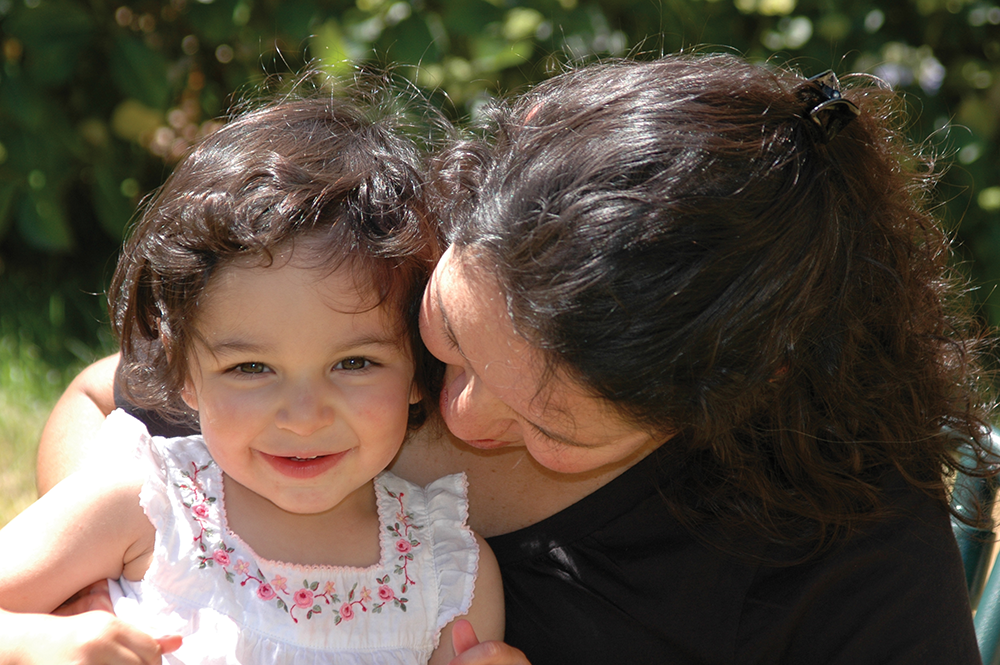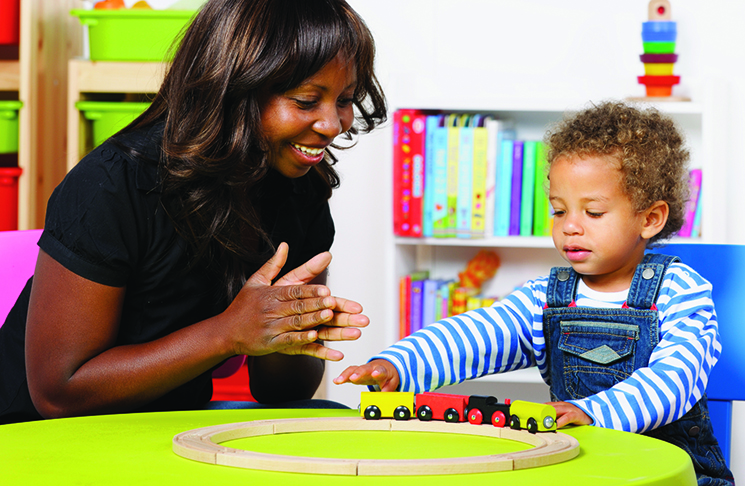Parent-Child Relationship Programs
Barnard Center for Infant and Early Childhood Mental Health
Parent-Child Relationship Programs (PCRP) gives professionals, parents and other caregivers the knowledge and skills to provide nurturing environments for young children by developing and disseminating innovative evidence-based and research-based products and training programs used in many disciplines and settings.
PCRP has a long and rich history in the Infant Mental Health field. There are hundreds of studies validating the work of our founder, Dr. Kathryn Barnard. In 1971, Dr. Kathryn Barnard, PhD, RN, FAAN, Professor of Family and Child Nursing at the University of Washington, initiated research that brought the ecology of early child development closer to the level of clinical practice by developing methods for assessing behaviors of children and parents.
She identified environmental factors that are critical to a child’s well-being and demonstrated the importance of parent-child interaction as a predictor of later cognitive and language development. Dr. Barnard was incredibly foresightful. These assessment tools, widely known as the NCAST Feeding and Teaching Parent-Child Interaction scales, were initially taught in 1979 to over 600 nurses in a series of eight classes via satellite in the United States. After the satellite training experiment ended, NCAST (Nursing Child Assessment Satellite Training), under the direction of Georgina Sumner, started offering a Certified Instructor Workshop in Seattle. These professionals gained reliability in the use of the Feeding and Teaching Scales and after obtaining certification as an NCAST Local Instructor went back to their communities to teach others in how to become astute observers of parent-child interaction using the scales.
To learn more about PCRP, visit our website.
Dissemenation Programs

Promoting First Relationships
Promoting First Relationships (PFR) is an evidence-based curriculum for service providers, to help parents and other caregivers meet the social and emotional needs of young children.
PFR uses a video feedback approach grounded in attachment theory and reflective practice principles.
PFR gives professionals who work with caregivers and young children (0-5) the knowledge, tools and strategies to guide and support caregivers in building nurturing and responsive relationships with children.

Parent-Child Interaction (PCI) Feeding and Teaching Scales
The PCI feeding and teaching scales are valid and reliable assessments for measuring parent-child interaction with an extensive body of research across disciplines.
PCI offers a well-developed set of observable behaviors that describe caregiver/parent child interaction in either a feeding or teaching situation.
Excellent pre and post measures are available to document intervention effects for clinicians and researchers.
These scales have been used in hundreds of studies and published in peer-reviewed scholarly journals.

Promoting Maternal Mental Health During Pregnancy
Promoting Maternal Mental Health During Pregnancy assists pregnant women in moving beyond the physical dimensions of pregnancy to the emotional and psychological challenges they face.
Program materials cover theory, practice and interventions with reproducible handouts to use with the pregnant woman.

BabyCues
Innovative intervention tools that help parents, home visitors and other caregivers be more “tuned in” to their infant and young child’s feelings by learning to understand and respond to their behavioral cues.

Understanding Infants
A research based educational program for professionals that provides essential information on newborn and infant behavior.
This program includes information on infant cues, infant states, state modulation and the importance of the feeding interaction.

Promoting First Relationships in Pediatrics
This is an interactive program to learn how to nurture and support the parent-child relationship during everyday clinic interactions with families and children.
Gain valuable tools and strategies to enhance your practice and support parents in understanding social-emotional development and difficult behaviors in young children.

Sleep/Activity Program
The Sleep/Activity Program provides information and strategies health care professionals and caregivers can use to promote predictable behaviors in babies and toddlers through activities and routines, while explaining the importance of promoting self-regulation.
The Sleep/Activity Program consists of the Beginning Rhythms Manual, the Sleep/Activity Record and two How to Promote Good Sleep Habits Handouts for Parents (0-3 months and 4-12 months).

Personal Environment Assessments (PEA)
These useful tools allow systematic assessment of the family’s environment.
PEAs are proven valid and reliable measures by researchers at the University of Washington who tested methods of assessment for early identification and subsequent intervention.
The PEAs which include the Difficult Life Circumstances, Community Life Skills Scale and the Network Survey are excellent as pre and post-treatment measures in research and practice.